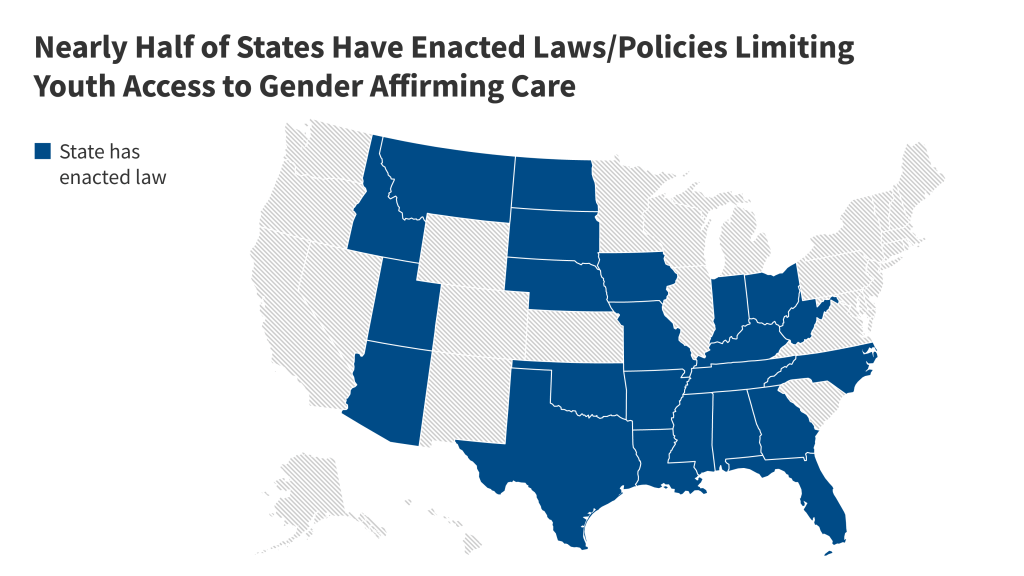
The independent source for health policy research, polling, and news.
New KFF Tracker Finds the Number of States with Restrictions on Youth Access to Gender Affirming Care Grew Five-fold Over the Last 18 Months
A new KFF resource tracks dozens of state laws and policies that restrict access to gender-affirming care among young people. Gender-affirming care supports and affirms gender identity through social, psychological, behavioral, or medical interventions.
As state laws and policies restricting youth access to gender-affirming care proliferate, KFF’s new tracker assesses this landscape, describing the content of laws and policy, identifying groups of people (in addition to young people) who are impacted (e.g., providers, parents, and educators), the types of penalties providers face, the basis and status of legal challenges, and other key information. The tracker will be updated regularly to reflect the evolving environment. Additionally, a related KFF analysis examines expansion in state actions to limit youth access to gender-affirming care.
The past few years have seen a rapid increase in the number of states enacting laws and other policies that restrict minors’ access to gender-affirming care. In the last 18 months, the number of states with laws or policies limiting minors’ access to gender affirming care has increased more than five-fold, climbing from just four states in June 2022 to 23 by January 2024.
The 23 states with laws and policies limiting youth access to gender affirming care are home to an estimated 38% of young trans people between the ages of 13-17.

Related Resources: